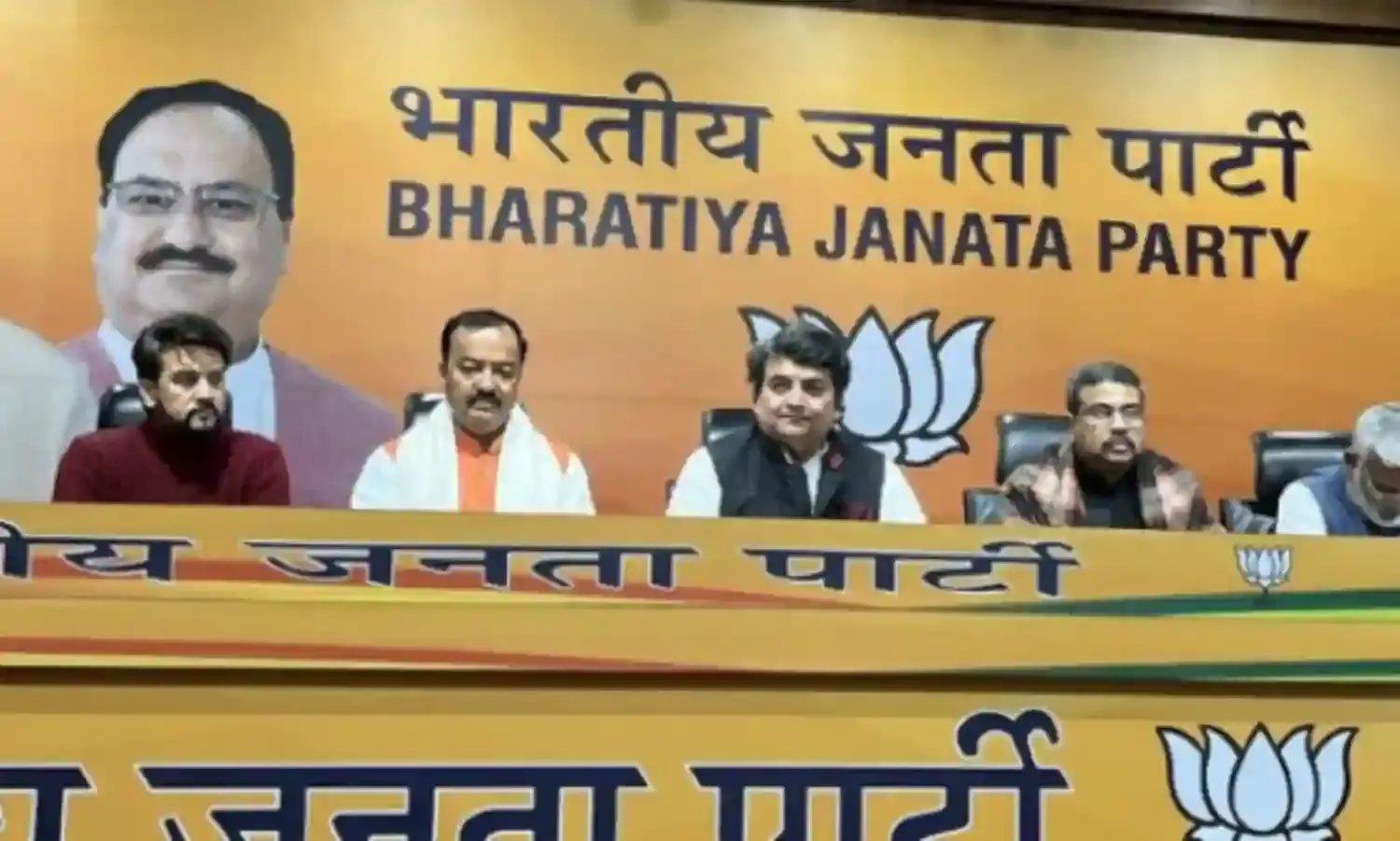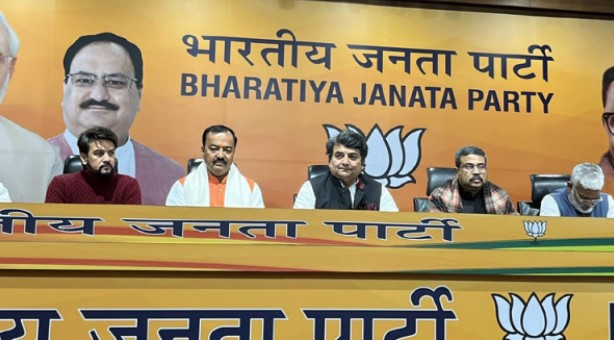Another Royal Migration
He was never known as an OBC leader in the area

RPN Singh’s exit from the Congress may not mean much either for the Congress, which he quit, or for the BJP, which he joined. Not having much ground level support of his own, with his area of influence limited to his native Padrauna, his maneuverings can at best be described as optics, “full of sound and fury signifying nothing.”
No doubt RPN Singh, as far as the visibility quotient is concerned, was high profile. Considered a core member of “Team Rahul” he was one of the star campaigners for the Congress party, and owing to his Doon and Stephens qualifications, and royal pedigree, was also sought after by the media.
He belonged to the Padrauna royal family and carried his royal lineage with great aplomb. His father the late CPN Singh was a prominent Congress member and represented his area in Parliament for many years, also holding key ministries in the Indira Gandhi led Congress governments.
RPN Singh came into the picture in 1996 after his father’s death. He won the assembly election in 1996, 2002 and 2007 from Padrauna. In 2009 he contested the Lok Sabha election from Kushinagar, of which Padrauna is an assembly segment, and defeated Swami Prasad Maurya, then with the BSP.
As CWC member and AICC in-charge of Jharkhand, which the Congress in alliance with the JMM had won shortly after the 2019 Parliament debacle, his profile did seem important enough. Well spoken, personable and easy to access, he was popular among media people too. But it was no secret that he was sulking in the Congress for the last one and a half years – no surprise as anyone in the Congress party with genuine political aspirations has been feeling a little lost in the wilderness.
Ever since the 2019 general election, the mother party has indeed looked adrift. The dissenting views raised by senior members have had no effect because there is no clarity about the party leadership. The designated leader, Sonia Gandhi, is a working president but not as active as one might want, owing to her fragile health. The perceived or presumptive leader, Rahul Gandhi, acts in fits and starts, responding to situations as and when his mood permits, jerky in his political planning. The exit of young leaders who formed the Rahul team, like Jyotiraditya Scindia and Jitin Prasada among others, exemplifies the malaise that has set in.
Though Ratanjeet Pratap Narayan Singh remained high profile in the party, his ground had started shrinking after 2009. In 1996 he won the Padrauna assembly seat with a 46% vote share. In 2002, though his vote share declined to 32% he still won the seat, because the votes on the other side got divided between the SP, BSP and BJP. By 2007 his share had plummeted to 20%, but he could still win because the vote was split three ways again.
In 2009 when the Congress stock was high, he contested the Lok Sabha election from Kushinagar and defeated Maurya, who was the BSP state president then, with a margin of over 20,000 votes. But the 2014 election saw the rise of Modi’s BJP and Singh lost the election to BJP’s Rajesh Pandey who secured 38% votes while Singh could muster only 29%. The last parliamentary election was even worse, when Singh not only lost the election, he also lost his deposit securing only 13% votes. The seat went to BJP’s Vijay Dubey who won with a thumping majority of 56% votes.
According to political observers, RPN Singh’s exit from the Congress party can at best be described as a loss of face because he had been declared as a star campaigner only a day before he quit. Though the BJP has been touting his OBC status, the fact remains that he was never known as an OBC leader in the area. He belongs to the Sainthwar caste, which is a notch above the Kurmi caste in hierarchy, but he always considered himself a kshatriya and refused to be a part of the caste rivalry in the area.
He never raised his voice about the pitiable condition of the lowest among lowered castes in the area, musahars, who live in abject poverty. And he never raised his voice against the activities of the fast emerging Hindu Yuva Vahini, an outfit promoted by Yogi Adityanath or Ajay Mohan Bisht, and he never raised the issue of sugarcane farmers or the closed sugarmills in the area. His influence was only because of his persona as the raja sahib.
The BJP may be announcing from the rooftops that Singh will counter the loss suffered by the exit of Swami Prasad Maurya from the party, but the fact remains that Maurya is a grassroot level leader who has risen through the ranks. He has a good hold not only over his own caste, the Kurmis, but other non-Yadav OBCs as well like Kushwahas, Rajbhars, Nonias, Shakyas and Sainis. His influence extends beyond Padrauna, to Deoria, Prayagraj, Ballia, Gorakhour, Basti and Behraich where the castes mentioned above are a deciding factor.
So to say that Singh can counter the loss suffered by Maurya’s exit to the Samajwadi Party is an overstatement. It can create a perception only that high-profile OBC leaders of other parties are joining the BJP too. And for the Congress, it can only mean a loss of face, nothing much.
While joining the BJP Singh declared that the Congress was not the same party in which he had spent 32 years of his life. This, however, hardly needs reiterating. Everyone knows it. What remains to be seen now is whether RPN Singh holds his own in the BJP, or is discarded into the dustbin of time once the perception war is over.




